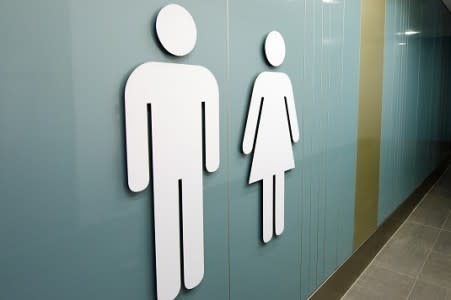Obama’s transgender policy formally abandoned
Two federal agencies of the Trump Administration on Wednesday evening notified the Supreme Court and school officials across the nation that the federal government will no longer require that transgender students get access to bathrooms and locker rooms that match their gender identites. A two-page policy statement thus formally overturned the approach followed for the past two years by the Obama Administration.

This was the first major action by new leaders of each of the two agencies, which have extensive powers to enforce national civil rights laws. The development was one of the most vivid illustrations, in domestic policy, of dramatic shifts that will result from the election of Republican President Trump.
According to stories in major newspapers this week, the president himself played a role in the policy switch. He reportedly told his new Education Secretary, Betsy DeVos, to overcome what was said to be her reluctance to change the policy and to get behind the initiative of the new Attorney General, Jeff Sessions, to withdraw the policy.
There was no reference to any such disagreement in either of the separate statements issued by those two department heads announcing the shift. Both of those statements echoed the White House view that the issue of access of students to intimate facilities at school – such as toilets, showers and locker rooms – is a matter best left to state and local governments. It thus would be up to those levels of government to decide whether they would protect transgender students in access to facilities that conform to their gender identities, rather than to the gender assigned to them at birth. Thirteen states now provide such protection under state laws.
Both government statements, however, vowed that federal officials would not tolerate acts of discrimination against transgender students at school, at least when bias took the form of “bullying and harassment.”
The policy switch, which applies to any school or college that receives federal education funding, will have no immediate effect because the Obama Administration policy has been under a nationwide court order issued last August that bars enforcement. That order was issued at the request of a dozen state governments and a handful of local school districts opposed to that policy.
The switch in policy focuses on the interpretation of a phrase in a 1972 civil rights law banning discrimination “on the basis of sex” in federally funded programs. That law is known as Title IX. The Obama Administration in 2015 became the first national government to take the view that this phrase also barred discrimination on the basis of gender identity. That policy was extended nationwide last May. Gender identity is a medical circumstance in which an individual is born with one gender designation but over time comes to accept themselves as being of the opposite gender.
Whether the Trump Administration’s view that Title IX does not outlaw discrimination based on gender identity will actually control the meaning of that law across the nation depends upon how the courts – and, especially, the Supreme Court – interpret it. A case from Virginia involving a 17-year-old transgender boy, now in his senior year at school in Gloucester County, is now pending before the Supreme Court and is scheduled for a hearing on March 28. The meaning of Title IX is directly at issue in that case.
It was because of that pending case that the Trump Administration notified the Justices in a letter on Wednesday evening about their changed interpretation of the law. The federal government is not directly involved in the case – that is a dispute between the Gloucester County School Board and the youth, Gavin Grimm. However, the Justice Department felt it had a duty to inform the Justices of the new legal position because lower federal courts had relied upon the Obama Administration’s interpretation in ordering the school board to allow the transgender youth to use the boys’ bathroom at school. The school board had forbidden that, after a protest by some local parents.
The meaning of Title IX is also at issue in continuing court cases involving North Carolina’s controversial law, “H.B. 2,” which imposed a statewide requirement that transgender people could only use bathrooms in state facilities in keeping with their gender assigned at birth. A similar law is now being considered in the Texas legislature.
In issuing the new policy “guidance,” the two federal agencies not only explained it by citing the perceived need to leave the issue to state and local government, but also criticized the Obama Administration for having adopted its view of Title IX without “extensive legal analysis” and without allowing public participation in developing the change.
Legendary journalist Lyle Denniston is Constitution Daily’s Supreme Court correspondent. Denniston has written for us as a contributor since June 2011 and has covered the Supreme Court since 1958. His work also appears on lyldenlawnews.com, where this story first appeared.
Recent Constitution Daily Stories
New immigration ban order will still face legal challenges
Waiting for Gorsuch? Supreme Court finally schedules last major case

